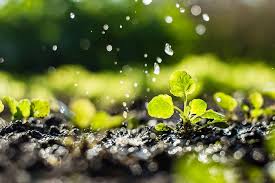
Dec . 16, 2024 02:47 Back to list
best natural and organic fertilizer
The Best Natural and Organic Fertilizers for Your Garden
In recent years, there has been a significant shift towards sustainable gardening practices, with many gardeners increasingly opting for natural and organic fertilizers. These fertilizers not only improve soil health but also support plant growth without the adverse effects associated with synthetic alternatives. In this article, we will explore some of the best natural and organic fertilizers, their application methods, and the benefits they offer to your garden.
1. Compost
Perhaps the most widely known natural fertilizer, compost is made from decomposed organic matter, such as kitchen scraps, yard waste, and other biodegradable materials. Compost enriches the soil with essential nutrients, improves soil structure, and enhances the microbial community. To create your own compost
- Collect a mix of green materials (nitrogen-rich) like fruit scraps and grass clippings and brown materials (carbon-rich) like dried leaves and cardboard. - Maintain a balanced ratio, ensuring adequate aeration and moisture. - Turn the pile regularly to accelerate decomposition.
The result is a nutrient-rich amendment that can be added to your garden, providing a slow-release source of nutrients over time.
2. Manure
Animal manure, particularly from herbivores like cows, sheep, and chickens, is another excellent organic fertilizer. It is rich in nitrogen, phosphorus, and potassium, essential elements for plant growth. However, fresh manure can be too high in nitrogen and may contain pathogens, so it is recommended to use well-composted manure or aged manure to avoid any potential harm to plants.
To utilize manure effectively
- Apply it to the garden in the fall or early spring. - Spread a uniform layer around plants, avoiding direct contact with plant stems to prevent burning.
Using manure can significantly improve soil health, contributing to better moisture retention and the diversity of soil life.
3. Bone Meal
Bone meal is a fantastic organic source of phosphorus, which is vital for root development, flowering, and fruiting. It consists of ground animal bones and typically contains about 10-15% phosphorus and 2-5% nitrogen. The slow-release nature of bone meal makes it ideal for long-term soil health and is particularly effective when added during planting.
best natural and organic fertilizer

To apply bone meal
- Mix it into the soil at a rate of about one to two tablespoons per planting hole or as indicated on the product label. - This can be particularly beneficial for root vegetables and flowering plants.
4. Fish Emulsion
Fish emulsion is a liquid fertilizer derived from fish remains and is an excellent source of nitrogen, omitting the strong odor usually associated with fish products. It provides essential nutrients and helps promote strong, healthy growth in plants.
When using fish emulsion
- Dilute it according to the package instructions, usually mixing one part fish emulsion with several parts water. - Apply it every 4-6 weeks during the growing season, either as a soil drench or foliar spray.
Fish emulsion is especially popular among organic gardeners due to its quick nutrient availability.
5. Seaweed Fertilizer
Seaweed, or kelp, is another powerhouse for garden fertilization. It is rich in micronutrients, growth hormones, and vitamins that promote robust plant growth and bolster resistance to diseases. Seaweed fertilizer is available in both liquid and granular forms.
To utilize seaweed
- If using liquid seaweed, dilute it per instructions and apply it directly to the soil or as a foliar spray. - Granular seaweed can be mixed into the soil before planting or sprinkled around the base of plants.
Conclusion
Choosing the right natural and organic fertilizers for your garden can enhance soil health, support plant growth, and contribute to sustainable farming practices. By incorporating compost, manure, bone meal, fish emulsion, and seaweed into your gardening routine, you can create an environment where plants thrive without the need for synthetic chemicals. These organic options not only nourish your plants but also contribute to a healthier ecosystem. Whether you are an experienced gardener or just starting out, exploring these natural fertilizers can yield incredible results in your gardening efforts. Happy gardening!
-
10-10-10 Organic Fertilizer - Balanced NPK Formula
NewsAug.02,2025
-
Premium Organic Manure Compost for Eco Gardens
NewsAug.01,2025
-
Organic 10-10-10 Fertilizer | Balanced Plant Nutrients
NewsJul.31,2025
-
Premium Amino Acid Fertilizer | Rapid Plant Growth Booster
NewsJul.31,2025
-
10 10 10 Fertilizer Organic—Balanced NPK for All Plants
NewsJul.30,2025
-
Premium 10 10 10 Fertilizer Organic for Balanced Plant Growth
NewsJul.29,2025
